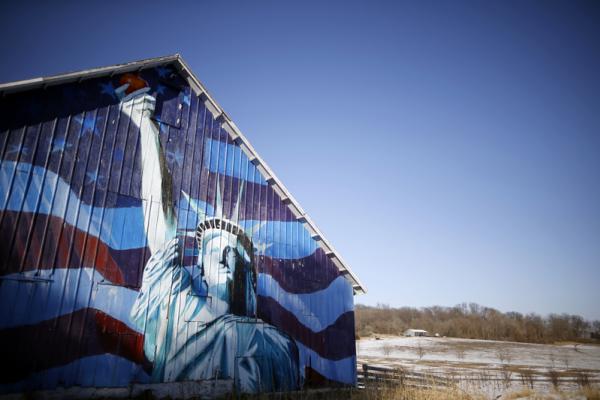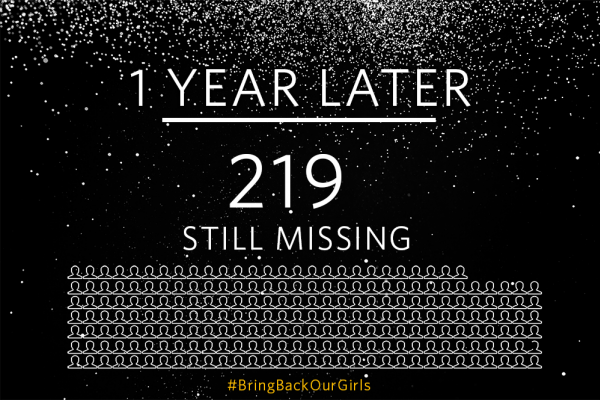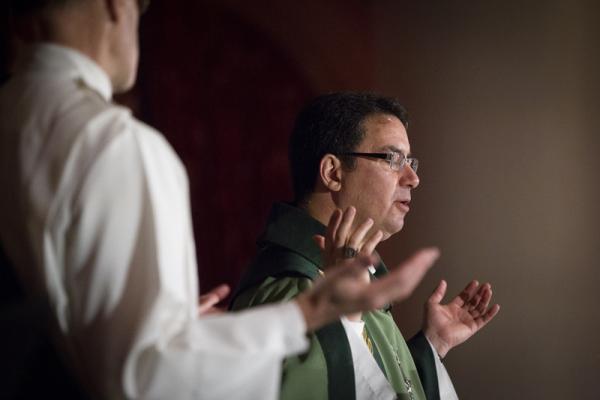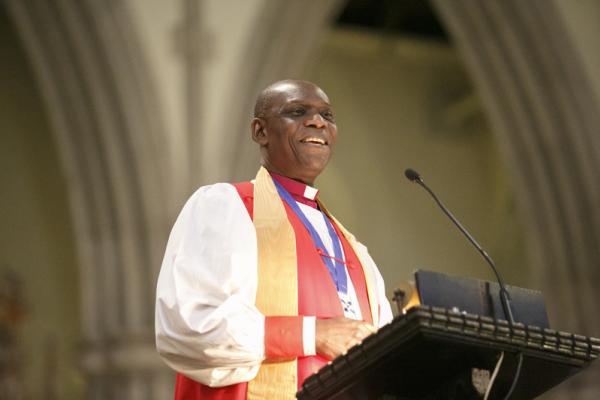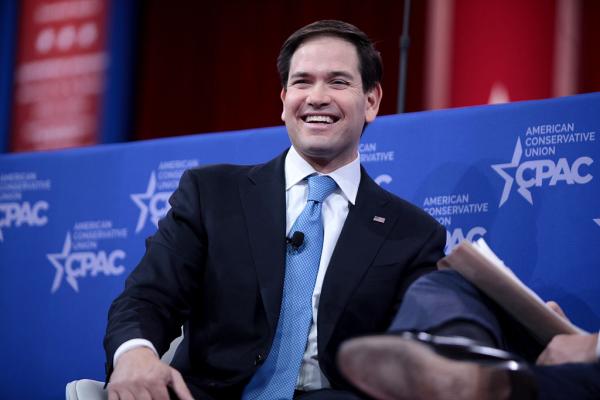Monica Lewinsky and Jesus Christ had a similar experience — they both occupied the place of shame.
In 1998, Monica became a lightning rod for shame in American culture. In her recent TED talk, The Price of Shame, she talks about her experience of public shame. With refreshing humor, she takes responsibility for the “wrong turns” she has taken.
The Lewinsky scandal happened on the cusp of the Internet boom. It was one of the first Internet scandals to go viral. Monica reflects that, “What that meant for me personally, was that overnight I went from being a completely private figure, to a publicly humiliated one worldwide.”
But Monica’s point is not that she’s a victim of shame. Rather, she is using her experience to warn us about our cultural inclination to put others in the place of shame. She hopes that sharing her experience “can lead to a cultural change that results in less suffering for others.”
And there has been a lot of suffering. The Internet has become a public hub of shaming. Monica states that, “A market place has emerged where public humiliation is a commodity and shame is an industry.”
Shame is big business on the Internet. Promoting scandals is the easiest method to get clicks. Monica explains the dangers of this economic system in a radically prophetic way:
"The more shame, the more clicks, the more clicks, the more advertising dollars. We are in a dangerous cycle. The more we click on this kind of gossip, the more numb we get to the human lives behind it. And the more numb we get, the more we click. All the while, someone is making money off of the back of someone else’s suffering. With every click we make a choice. The more we saturate our culture with public shaming, the more accepted it is, the more we will see behaviors…that have humiliation at their core. This behavior is a symptom of the culture we have created."
A culture of shame is more than making money on the Internet. It’s also about developing a sense of moral superiority over and against another person. Gossip sites are addictive because they allow us to feel good about ourselves at the expense of another. Notice that we feel the need to gossip and scapegoat others because we don’t feel good about ourselves. And so we unite with others against another person. Gossip boils down to this thought that runs through our heads: How could they do such a stupid thing! At least I’m not as bad as them!
As presidential candidacies multiply and campaigning accelerates, we can expect much tawdriness to occur. These are difficult times in American democracy.
Money will pour into negative campaigning and ideological posturing. Lies will become the norm. Every word will evoke counterattack, and facts will lose their currency. Barbed sound bites will be mistaken for wisdom. Bullies claiming to be “Christian” will be among the loudest. On both sides.
What are people of faith to do?
We can assume, first of all, that truth-telling will be absent all around. We, then, need to be truth-seekers, reading beyond the sound bites and toxic jabs for actual insights into what candidates stand for and what is their character.
We can assume, second, that God’s name will be taken in vain by everyone. Every candidate will tell stories of personal faith, maybe even dramatic conversion. They will quote Scripture and claim to be promoting God’s work.
In fact, to judge by candidates’ behavior, their words will be insincere and their faith a concoction meant to satisfy the sweet tooth of religious leaders. We, then, need to do our own work of discerning whether they have any functional familiarity with Scripture and any real concern for Christian ethics.
One year after the kidnapping of 276 Nigerian schoolgirls by terror group Boko Haram, more than 200 kidnapped children remain missing.
The kidnapping on April 15, 2014, provoked international outrage and a viral twitter hashtag, #BringBackOurGirls. Many prominent personalities — including First Lady Michelle Obama and comedian Ellen DeGeneres — joined the global outcry, prompting Nigeria to launch a military offensive against the group. Also in the last year, the U.S. military and others have offered Nigeria assistance in finding the children.
But few children to date have escaped from what is widely counted among the most ruthless terror groups operating in North Africa.
According to NBC:
"The Chibok girls were just one group of many, many others who have been kidnapped since last year," said Biu, a woman's rights activist and professor in Maiduguri, Nigeria. "I cannot say that the #BringBackOurGirls campaign has made women and young girls in the northeast feel any safer."
While a few dozen of the Chibok girls have escaped Boko Haram captivity, more than 200 are still missing. To Biu, the international campaign to release the girls did little to bring them home — or stop countless others from being taken since.
Since then, NBC reports, Boko Haram's campaign of terror has continued "largely unabated."
Read more here.
The U.S. Catholic bishops have welcomed the Obama administration’s tentative agreement aimed at limiting Iran’s nuclear ambitions, and their top spokesman on international affairs bluntly warned Congress against doing anything to undermine it.
The bishops “oppose efforts that seek to undermine the negotiation process or make a responsible multi-party agreement more difficult to achieve and implement,” Bishop Oscar Cantu, chairman of the bishops’ Committee on International Justice and Peace Committee, wrote to House and Senate lawmakers on April 13.
“The alternative to an agreement leads toward armed conflict, an outcome of profound concern to the Church,” said Cantu, who heads the Diocese of Las Cruces, N.M.
The warning — and accompanying support in a letter of commendation that Cantu sent last week to Secretary of State John Kerry — follow a thumbs-up from Pope Francis to the proposed accord, and coincides with an endorsement on April 13 by a group of largely liberal mainline Protestant leaders.
Diplomats from the U.S. and six world powers meeting in Switzerland earlier this month unveiled the framework of what could be an historic accord to inspect Iran’s growing nuclear program and prevent it from developing a nuclear weapon.
Lately I’ve noticed that the “prayers of the people” at my church are beginning to sound like the sixth seal of the Book of Revelation has been broken and the world is about to implode. While I'm glad we pray about important topics in global affairs like Iran's nuclear program or ISIS, it’s easy to feel tense when folks start rattling off one shocking headline after another. I want to be engaged with the things in our world that need change, but I wonder to myself: Where is hope? Where is the good news? It seems like our message has become: “Be afraid. Be very afraid. Oh … and Jesus.”
In “A Newsfeed of Fear,” (Sojourners, May 2015) Gareth Higgins writes: “Our culture has been hoodwinked by the idea that we’re living in the center of a crisis when actually we’re in the midst of an evolution of hope.”
Scandal and sensation are nothing new to the media, but I think Higgins is on to something: with our newsfeeds delivering a daily stream of scandals, shootings, and outrage to our pockets and wrists it seems easier to believe that our world is falling apart. And when these stories lack context, follow-up, or conversation, one crisis can just seem to flow into another.
In a recent conversation with my father-in-law, Elly Alboim, a veteran journalist and professor of journalism, he admitted that news media can paint “an unrelentingly bleak view of the world.” He noted how news outlets often focus on inexplicable tragedies (plane crashes), threats to health and wellness (U.S. fear over Ebola), and the bizarre (take your pick), all of which reinforce our sense that we’re living on the edge of global apocalypse.
Alboim also explained that people typically process the news in terms of threats. Each morning they perform their own kind of threat assessment, beginning with the most immediate threat — the weather — moving on to morning traffic and eventually, all the way to news of global terrorism.
African Anglicans welcomed the appointment of a Nigerian bishop as the next secretary general of the 85 million-member Anglican Communion, even as others criticized the appointment because of his anti-gay comments.
Bishop Josiah Atkins Idowu-Fearon beat other applicants from Oceania, Asia, Europe, and the Americas and will assume the mostly ambassador-type post at a time when the worldwide communion remains estranged over homosexuality and same-sex marriages, especially in Africa.
“He is articulate and very well educated,” said Bishop Julius Kalu of Mombasa, Kenya, diocese.
“His position on traditional Anglicanism is very firm. This is good for us.”
Kalu said the appointment had come at the right time, when African Anglicans needed a bigger voice within the communion.
“The church is growing fastest here,” said Kalu.
Radical Muslims. The phrase elicits images of ISIS militants and terror in the desert, perhaps grainy YouTube videos, Kalashnikovs, and raised fists.
What about a man in an ankle-length garment and cotton headscarf carving the air with his skateboard?
Is that a radical Muslim?
Along with shirts bearing the “Radical Muslims” image and a Nike-like swoosh saying “Just Dua It” (dua being nonobligatory Muslim prayer, or supplications), Boston-based Munir Hassan has created an entire line of stereotype-shattering clothing for American Muslims.
In an explicit attempt to flip the script on popular images of Muslims and Islamic symbols, Hassan’s own Sidikii Clothing Co. merges cultures in fashion-forward, Muslim inspired designs.
“I’m Muslim, I’m American. I was born both,” said Hassan.
“I wanted to design clothing that showcased different pieces of my culture inclusively.”
Sen. Marco Rubio (R-Fla.), who is expected to launch his presidential campaign April 13, often talks about faith and wrote about his religious convictions in his 2012 book, An American Son: A Memoir.
Here are five faith facts about this Catholic son of Cuban immigrants who has also found comfort in Mormonism and a Southern Baptist church:
1. He was once a serious young Mormon.
Rubio’s parents baptized him Catholic and he is now a practicing Catholic, but when he was 8, his family moved from South Florida to Las Vegas, where his mother attributed the wholesomeness of the neighborhood to the influence of the Mormon Church. Young Rubio was baptized again, this time in the Church of Jesus Christ of Latter-day Saints. He spent three years as a Mormon, upheld its teachings more enthusiastically than his parents, and chided his father for working as a bartender, a no-no for Mormons who abstain from alcohol.
2. He frequents a Southern Baptist megachurch.
Rubio and his wife Jeannette often visit Miami’s Christ Fellowship, a Southern Baptist congregation the couple appreciates for its strong preaching and children’s programs. Rubio has donated at least $50,000 to the church, which he attended almost exclusively from 2000 to 2004. But he now finds his religious home in Catholic churches in Washington, D.C. and Florida. In his memoir, Rubio writes that he will go with his family to Christ Fellowship on Saturday nights, and Mass on Sundays at St. Louis Catholic Church. His children have received First Holy Communion.
For people benefitting from systematic wealth, power, comfort, favor, and convenience, it can be difficult to relate to the constant and endless forms of racism, stereotyping, and injustice that are experienced by others.
The privileged don’t experience the daily realities faced by the likes of Walter Scott, Trayvon Martin, Michael Brown, Eric Garner, and millions of others who have lived under completely different — and radically unfavorable — circumstances.
This is why Christians — no matter what your background — must passionately engage in such things as relationship-building, participating in dialogue, and actively reading, experiencing, and listening to various perspectives. Because doing this informs, directs, and edifies one of the most powerful spiritual tools we have: our imagination.
Imagination is defined as the faculty of imagining or of forming mental images or concepts of what is not actually present to the senses.
Friendships, personal accounts, testimonies, books, footage, stories, and experiences empower us to have a better picture, perspective, and understanding of others. Even if we don’t personally struggle with the same types of injustice and inequality that others do, we’re at least given the ability to imagine its reality, accept its existence, empathize with its victims, and comprehend truths we weren’t previously aware of.
In the Bible, Jesus is constantly challenging the status quo and striving for justice, peace, and reconciliation against cultural factors and precedents that seem impossibleto overcome. For the individuals God calls upon, they are required to imagine the inconceivable, accept the unthinkable, and break out of their stubborn paradigms in order to embrace the Divine.
Imagine the sea being parted, walking on water, feeding the 5,000, being healed of leprosy, encountering a talking donkey and a talking (burning) bush, and rising from the dead.
As a journalist, editor, media professional, and all-around digital addict, I believe the ever-present “newsfeed of fear” engenders a very real threat to our personal well-being. But is it possible that it also harbors startling implications for our behavior and even our relationships?
Reflecting on Gareth Higgins’ words on “availability heuristic” (“A Newsfeed of Fear,” Sojourners, May 2015) — basically, that our fear of bad things happening is based on how many examples of those bad things we can easily bring to mind — the first thought that entered my head was my constant command to my 1.5-year-old, “Hold Mommy’s hand!”
Of course, we live in the middle of Washington, D.C., on a high-traffic street with no front yard to speak of; any time we leave the house, I have to go on high alert lest my newly running toddler dart off the sidewalk. But when I dug a little deeper to explore in what other circumstances my danger-Will-Robinson-danger alarm has gone off, I was forced to admit that it can occur basically any time she’s in my care.
When I became a parent, it inexplicably became frightening that my house didn’t have a mudroom — or anything save a single slab of lockable wooden door separating our warm and cozy home from the terror that existed beyond it. Suddenly, a 5-degree rise or drop in my kid’s nursery — indicated by her video monitor, which also plays soothing lullaby music — became cause to purchase a window AC unit and an electric heater despite our house’s central air and heat. I contemplated buying the mattress pad that sounds an alarm if it detects baby has stopped breathing (because SIDS), but opted against it since I was already checking on her every five minutes anyway.
First, let me say, I think all of these are good and normal (right?) reactions to first-time parenthood, and I have since calmed the hell down. But they can also be artificially generated behavioral responses to the digital world we live in, enhanced by mommy blogs and parenting books warning us of the dangers of crib bumpers (27 accidental deaths/year) and window blind cords (about 7 deaths in 2014). And don’t even get me started on #PregnancyFeedFear — somewhere around 6 months in, you give up and just eat the dang sushi and deli meat.

